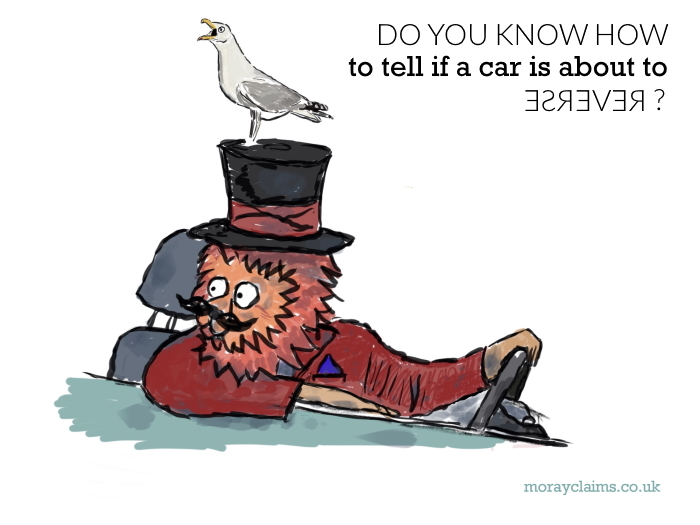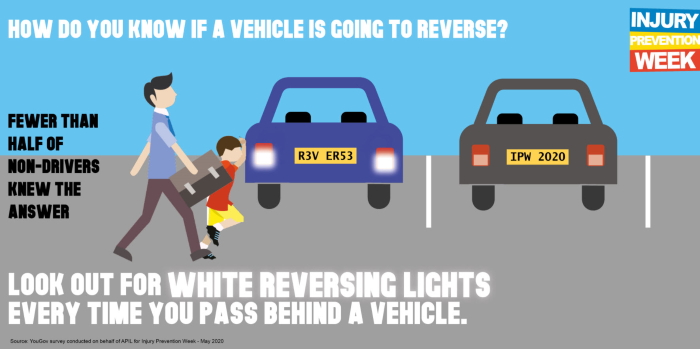
Once we know something, we find it difficult to imagine what it was like not to know it.
This is known as the Curse of Knowledge.
Here’s an example.
In a 1990 experiment, pairs of people had to try to identify 120 well-known songs – e.g. Happy Birthday to You. One of them was to tap out the rhythm on a table and the other had to guess the song from that rhythm alone.
On average, the listeners guessed only 3 out of 120 songs – a success rate of just 2.5%. Startlingly, though, when the tappers were asked to predict how many of the songs the listeners would guess, they reckoned the odds were 50/50 (50%).
The tappers got their tune identified 1 time in 40, but they thought it would be 1 time in 2.
Of course, the tappers were hearing the tune in their heads as they tapped. They couldn’t imagine what it was like for the listeners to hear isolated taps – more akin to Morse Code – rather than a song.
The tappers’ knowledge had “cursed” them.
In road safety terms, it seems that drivers and non-drivers may in some ways be like tappers and listeners too. How do you know if a car is about to reverse?
If you have passed your driving test, you probably know the answer.
But if you haven’t got your driving licence, you probably don’t know it.
Research results released in August 2020 show that most non-drivers do not know how to tell if a car is about to reverse into them.
Only 44 per cent of non-drivers who answered a survey by YouGov for APIL’s Injury Prevention Week knew what to look for.
Some of the wrong answers to the question how do you tell if a car is about to reverse included:
- The car has its hazard lights flashing.
- The driver makes eye contact with you.
- Fogged-up windows will let you know someone is in the car.
- The driver beeping their horn.
- Check the car’s wing mirrors.
- The seagull on the car’s roof starts squawking a lot.
Okay, so we made up the last one in that list. But, even so, it doesn’t seem all that much out of place with the others.
The Highway Code is not just for drivers.
It has a section dedicated to the rights and duties of pedestrians.
Unfortunately, the YouGov survey indicated that almost three quarters of UK adults who don’t drive said they had not read the rules, or could not recall having done so.
In the UK, the annual number of pedestrian fatalities has remained quite constant over the last 10 years, despite reductions in the number of deaths of other types of road user over the same period.
Pedestrians make up more than a quarter of the annual total of road deaths in the UK.
The latest figures show that nearly 22,000 folk travelling on foot were injured or killed on UK roads in the last year. That’s about 60 people per day.
To know if a car is about to reverse, you need to watch out for reversing lights going on.
Especially when walking behind a parked car, everyone should be aware that bright white lights coming on at the back of the car mean it’s probably about to reverse towards you.
The Highway Code deals with reversing vehicles and pedestrians:
“Never cross behind a vehicle which is reversing, showing white reversing lights or sounding a warning.”
The Highway Code, Rule 15.
For those of us who have passed our driving test, there are some possible action points here.
- Realise that your knowledge about reversing lights coming on has “cursed” you – you think “everyone knows that warning sign”, but they don’t.
- Educate children and other non-drivers about this issue by saying things like: “Look that car is about to reverse as its white reversing lights have come on.”
How do you respond to a car suddenly reversing towards you?
If you can’t get out of the way, I suggest that slapping your open palm as hard as you can onto the car bodywork will give the driver enough of a fright that they’ll hit the emergency brakes (thinking they’ve hit something).
They may not be very happy with you for the shock they get but you’re unlikely to dent their vehicle – and it could save you from serious injury or worse.

How we can help
If you’ve been injured as a pedestrian as the result of a road traffic accident, we can help with advice on the possibility of making a personal injury compensation claim.
We aim to help people in Moray to claim fair and full compensation for personal injury in such a way that it costs you nothing, whether your claim is successful not. We are specialist, accredited solicitors at Grigor & Young LLP, Elgin.
See the article HERE, if you want to understand more about what will actually happen if you get in touch with us about making a personal injury compensation claim.
You can call us on 01343 544077 or you can send us a Free Online Enquiry.
Make A Free Online Enquiry Now
Links you might like
These articles on this website cover issues to do with pedestrian safety and avoiding road traffic accidents if you’re travelling on foot:
Why Walking on National Speed Limit Roads during the Hours of Darkness is such a Bad Idea